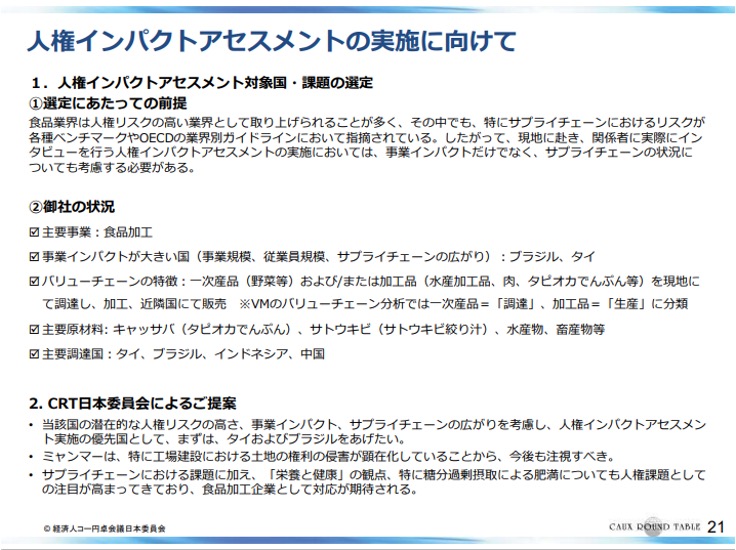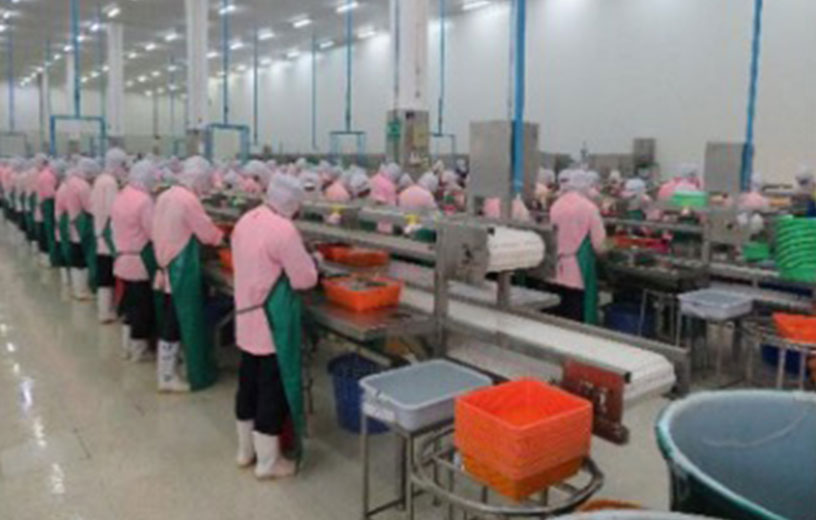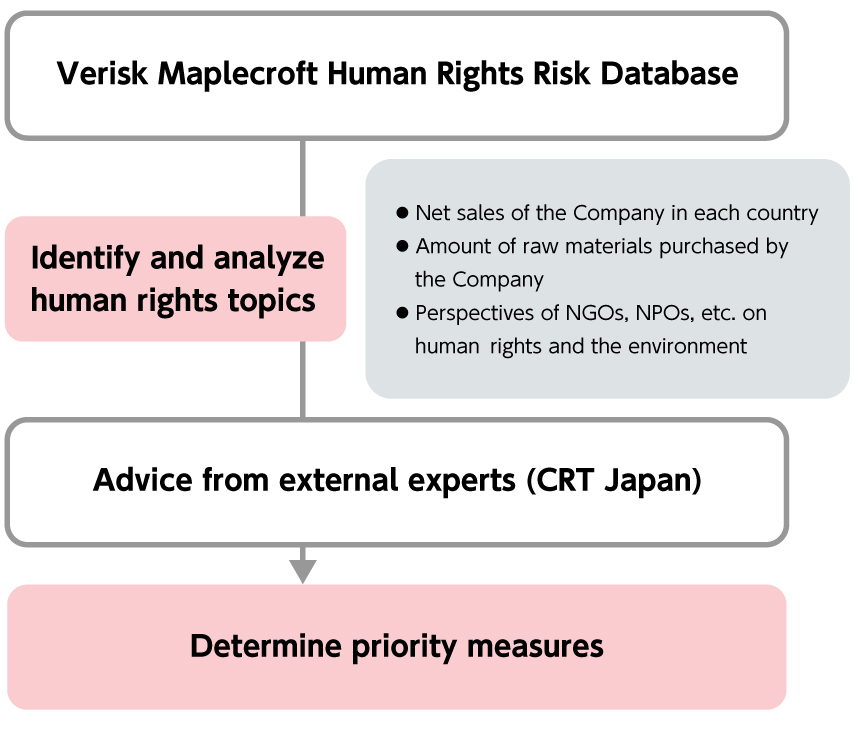Past Human Rights Initiatives
(1) FY2018 Human Rights Risk Assessment and Human Rights Impact Assessment
1) Human Rights Risk Assessment
Using the Verisk Maplecroft Human Rights Risk Database, we identified and analyzed human rights topics with the advice of an external expert, Caux Round Table Japan (CRT Japan). We identified Thailand (seafood processing and poultry industries) and Brazil (coffee beans and sugarcane molasses) as high-risk countries/regional industries in connection with the Ajinomoto Group's food businesses.
The high-risk matters we identified included occupational health and safety, child labor, and forced labor.
Report of the FY2018 Human Rights Risks Assessment (CRT Japan)

2) Human Rights Impact Assessment (Direct Dialogue with Rights-holders)
- Human Rights Impact Assessment in Thailand (2019)
With a particular attention to the seafood processing and poultry industries, we visited manufacturing plants and aquaculture farms involved in the Ajinomoto Group’s value chain. We also engaged in dialogues and interviews with international NGOs and National Human Rights Commission of Thailand, as well as industry associations in the seafood and poultry industries and migrant workers.
〈Result summary〉
It is clear that the legal system in Thailand is well developed and an effective remedy mechanism is functioning in the poultry industry. We intend to extend these good practices to other businesses and regions where the Ajinomoto Group operates.


- Human Rights Impact Assessment in Brazil (2021-2022)
With a particular attention to the sugarcane molasses and coffee bean industries, we conducted dialogues and interviews with manufacturing plants and farmers involved in the Ajinomoto Group’s value chain, international NGOs, national human rights institutions, and industry associations. (Conducted online due to COVID-19)
〈Result summary〉
It is clear that the regions where the Ajinomoto Group conducts procurement are highly mechanized and the risk of human rights violations is not high. At the same time, it has been suggested that, although the legal system in Brazil is well-developed, specific remedy mechanisms are inadequate. We will continue to explore the establishment of a remedy mechanism in this region.

(2) 2022 human rights risk assessments

The Ajinomoto Group conducts country-specific human rights risk assessments every four years. The 2022 risk assessment analyzed and identified human rights issues in the countries in which the Ajinomoto Group operates food businesses. We collaborated with external human rights experts (CRT Japan) to analyze analysis risks based on raw material purchases and sales using human rights risk data from Verisk Maplecroft. Furthermore, based on the perspectives of NGOs and NPOs on human rights and the environment, we identified high-risk countries, regions, and industries across our own value chain from the standpoint of global human rights.
Results indicated that high-risk countries and regions include Southeast Asia and Brazil, while high-risk issues*1 identified include occupational health and safety, child labor, modern slavery (forced labor), and discrimination. We also identified the risks depicted in the following table based on evaluations of priority raw materials*2 sourced by the Ajinomoto Group.
※1 Risks assessed: Child labor, fair wages, reasonable working hours, discrimination, freedom of association, modern slavery, occupational health and safety, land grabbing
※2 We prioritized the following five raw materials in our human rights risk assessments. (See Sustainability Report 2023, p. 79, for a list of priority raw materials)
| Raw Materials Assessed | Coffee Bean | Sugarcane Molasses | Soybeans | Shrimp | Palm Oil |
|---|---|---|---|---|---|
| High Risk Issues |
|
|
|
|
|
| Countries |
|
|
|
|
|

